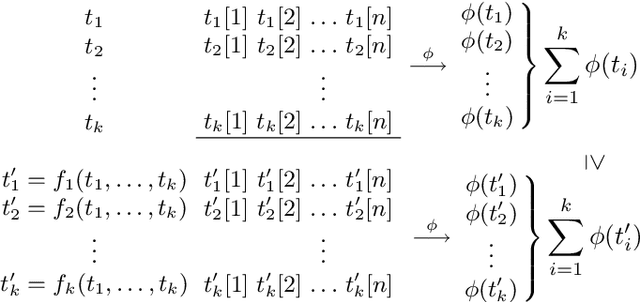Peter G. Jeavons
Tractable Combinations of Global Constraints
Jul 10, 2013


Abstract:We study the complexity of constraint satisfaction problems involving global constraints, i.e., special-purpose constraints provided by a solver and represented implicitly by a parametrised algorithm. Such constraints are widely used; indeed, they are one of the key reasons for the success of constraint programming in solving real-world problems. Previous work has focused on the development of efficient propagators for individual constraints. In this paper, we identify a new tractable class of constraint problems involving global constraints of unbounded arity. To do so, we combine structural restrictions with the observation that some important types of global constraint do not distinguish between large classes of equivalent solutions.
The Expressive Power of Binary Submodular Functions
Nov 12, 2008
Abstract:It has previously been an open problem whether all Boolean submodular functions can be decomposed into a sum of binary submodular functions over a possibly larger set of variables. This problem has been considered within several different contexts in computer science, including computer vision, artificial intelligence, and pseudo-Boolean optimisation. Using a connection between the expressive power of valued constraints and certain algebraic properties of functions, we answer this question negatively. Our results have several corollaries. First, we characterise precisely which submodular functions of arity 4 can be expressed by binary submodular functions. Next, we identify a novel class of submodular functions of arbitrary arities which can be expressed by binary submodular functions, and therefore minimised efficiently using a so-called expressibility reduction to the Min-Cut problem. More importantly, our results imply limitations on this kind of reduction and establish for the first time that it cannot be used in general to minimise arbitrary submodular functions. Finally, we refute a conjecture of Promislow and Young on the structure of the extreme rays of the cone of Boolean submodular functions.
* 16 pages
 Add to Chrome
Add to Chrome Add to Firefox
Add to Firefox Add to Edge
Add to Edge